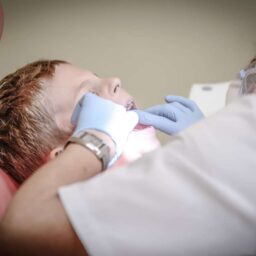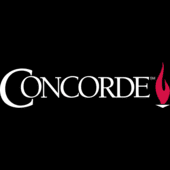
Dental Hygenist Degrees for Military and Veterans
Degree and Careers for Dental Hygienists
An education as a dental hygienist can open doors to a sustainable career with competitive pay. Dental hygienist jobs can be found in the private sector, government employment, and even opportunities with nonprofits and outreach programs throughout the country.Job requirements for a dental hygienic career typically include an associate's or bachelor’s degree education. Dental hygienists work alongside dentists; in some states, they can operate independently as a stand-alone dental health practice.
The US Bureau of Labor Statistics estimates employment opportunities for dental hygienists will grow 11% over the next decade, much faster than the average for all occupations.
Meeting the qualifications to become a dental hygienist will allow a career in the dentist's office and additional outside-the-clinic choices in corporate, educational, or public health settings. Applicants in the corporate sector can work in pharmaceutical or dental supply sales, manage a dental office, or work with dental insurance providers.
In the education sector, qualified dental hygienists can work as classroom, clinical, didactic or laboratory instructors and researchers. They can also work in the public health sector and community clinics.
Depending on the location and qualifications, a dental hygienist's median annual salary can be around $76,000. This field and its branches will continue to grow.
This career path can fit into the lifestyle of military spouses, who may relocate frequently to adapt to reassignment and their family’s needs. National need for these positions allow military spouses to find jobs across the country. To get started, military spouses should look into qualifying for assistance through MCAA to further their education in this field.
Dental Hygienist Responsibilities and Duties
A dental hygienist’s primary objective is preventative oral healthcare of their patients as they work closely with the dentist and other dental office personnel. Their direct patient duties may include:- Conducting initial exam and assisting in acts directed by a dentist
- Assessing the patient's overall dental health
- Documenting patient treatment and care plan
- Communicate with dentists throughout patient treatment
- Cleaning teeth using tools such as scrapers, polishers, and ultrasonic scalers to remove tartar, plaque, and stains
- Applying preventative treatments such as fluoride and sealants
- Collecting medical history
- Educating patients on preventative oral healthcare
- Taking and developing dental x-rays
- Delivery of local anesthesia as directed
For admission to a program in dental hygiene, you will need a high school diploma, problem-solving skills, attention to detail, technical abilities and the ability to show empathy toward patients. Some schools may also require a minimum GPA on high school transcripts.
Filters
Degree Level
Search and select multiple degree level.
Search and select multiple degree level.
Associate's degree
Bachelor's degree
Certificates
Doctorate degree
Master's degree
Degree Program or Area of Study
Search and select multiple area of focus.
Search and select multiple area of focus.
Dentistry
Dental Assistant
Accounting & Finance
Advertising
Aerospace, Aviation, Aeronautical, and Astronautical Engineering
Agriculture Business & Production
Agriculture Science
Airframe & Powerplant
American/United States Studies/Civilization
Animal & Livestock Sciences
Anthropology
Arabic Language & Literature Studies
Architecture Studies
Art History, Criticism and Conservation
Art Teacher
Art, Animation, Design General
Astronomy
Auto/ Transportation Studies
Automotive Mechanics Technician
Aviation
Bio/ Chemical Engineering
Biochemistry
Biology
Biology Teacher
Biomedical & Medical Engineering
Biotechnology
Business Administration
Business Analytics
Business Operations Support and Assistant Services
Carpentry / Carpenters
Chemistry
Chiropractic / Chiropractor
Civil Engineering
Communications
Computer Engineering
Computer Science
Computer Technician
Conflict & Dispute Resolution
Construction Engineering
Construction/ Labor
Cosmetology, Grooming, Haircare & Styling
Counter Terrorism
Creative Writing
Criminal Justice Policy
Criminal Justice, General
Culinary Arts & Food Services
Culinary Management
Culinary Studies
Cultural & Language Studies
Curriculum and Instruction
Cyber Security & Operations
Dance
Data Analytics
Data Analytics & Data Science
Data Science
Early Childhood Education
Earth & Environmental Sciences
Eastern Medicine
Economics
Education Administration
Education/ Teacher Development
Electrical Engineering
Electrician Technology
Electrocardiograph Technology/Technician
Elementary Education
Emergency Medical Technician (EMT Paramedic)
Emergency Services
Energy Systems
Energy Systems Engineering
Engineering General
Engineering Technologies/Technicians
Engineering Technology
English
English as a Second Language/ESL Language Instructor
English/Language Arts Education
Entrepreneurship/Entrepreneurial Studies
Executive Assistant - Certificate
Fashion
Film & Photography
Finance Crime
Fire Science & Fire Services
Funeral Service & Mortuary Science
General Disciplines Teacher Education
General, Multi-/Interdisciplinary Studies
Genetics
Geography
Geology/Earth Science
Graphic Design
Health Data Analysis
Health Science
Healthcare Administration
Heating, Air Conditioning, Ventilation and Refrigeration Maintenance Technology/Technician (HAC, HACR, HVAC, HVACR)
Hemodialysis Technician
History
Homeland Security
Hospitality/ Tourism
Human Behavior Studies
Human Resources
Human Services, General
Humanities/Humanistic Studies
HVACR
Industrial Engineering
Information Sciences
Information Technology
Integrative and Functional Medicine
Interior Design
International Business/Trade
International Relations / Global Studies
IT Management
IT Security
IT Support
Journalism
Junior High/Intermediate/Middle School Education
Lab Sciences
Language Teacher Education
Leadership & Management
Legal Assistant/Paralegal
Legal/ Law Studies
Library Science & Administration
Logistics & Supply Chain Management
Management in Energy
Management Information Systems
Marketing & Retail
Massage Therapy
Mathematics
Mechanical Engineering
Medical Administrative Assistant
Medical Assistant
Medical Coding and Billing
Medical Residency
Medical Transcription Editing
Music & Singing
Music Education
Naturopathic
Neuroscience
Nuclear Engineering
Nursing
Nutrition
Occupational Therapy / Sciences
Optometry
Personal Trainer
Pharmacy
Pharmacy Technician
Philosophy
Physical Education Teaching / Coaching
Physical Sciences (Other)
Physical Therapy/ Exercise Science
Physican Assistant
Physics
Physiology
Police/Corrections/ Criminal Studies
Political Science
Pre-healthcare Studies
Procurement & Acquisition
Project Management
Psychology Studies
Public Administration
Public Health
Public Relations
Public Sector Management
Radiology and Medical Imaging Sciences
Reading Teacher
Real Estate
Religious Studies
ROTC
School Counseling and Guidance
Science Teacher
Secondary Education
Security & Military Science
Skin/ Make-Up/ Nail Specialist
Social Sciences
Social Studies Teacher
Social Work
Sociology
Spanish
Special Education
Sports and Fitness Administration
Statistics & Business Analytics
Surgery Residency/Fellowship Programs
Theatre
Trade/ Technicians
Vehicle/ Engine Technology/ Repair
Veterinary Assistant
Veterinary Science & Animal Care
Welding
Womens Studies
Where do you plan to study?
Alabama
Alaska
Arizona
Arkansas
California
Colorado
Connecticut
Delaware
Florida
Georgia
Hawaii
Idaho
Illinois
Indiana
Iowa
Kansas
Kentucky
Louisiana
Maine
Maryland
Massachusetts
Michigan
Minnesota
Mississippi
Missouri
Montana
Nebraska
Nevada
New Hampshire
New Jersey
New Mexico
New York
North Carolina
North Dakota
Ohio
Oklahoma
Online
Oregon
Pennsylvania
Puerto Rico
Rhode Island
South Carolina
South Dakota
Tennessee
Texas
Utah
Vermont
Virginia
Washington
Washington, DC
West Virginia
Wisconsin
Wyoming
Type of School
Years Offered
Campus Setting
Size of School
Gender-Specific
Religious Affiliation
Religious Affiliation
Ethnic Affiliation
Financial SupportAcademic SupportPrograms
Choosing a Program/Career Path
When choosing a dental hygienist program, a person should consider the accreditation status of the institution offering the program from the Commission on Dental Accreditation, the type of CODA-accredited program and the length of the program.Some high-speed programs last between 17 and 22 months, while bachelor degrees may take as long as four years. To qualify, all programs must be CODA-accredited. Programs include entry-level or no-experience options to help learners earn their associate's, baccalaureate, or post-baccalaureate degrees.
Other programs are intended for dental hygienists who already have their license to continue pursuing higher levels of education. To work as a dental hygienist, an associates degree in the field would be the minimum requirement.
Programs should cover general knowledge of dental hygiene, biomedical science, dental science and dental hygiene science and include in-person practice and lab work supervised by an approved and qualified educator.
After completing a CODA-accredited degree, the next step is licensing. Requirements may vary by state, so be sure to look into state-specific requirements where you live or where you plan to work. To get licensed, all students must pass the NBDHE, or National Board Dental Hygiene Exam.
In addition to this, some states may require their state exam. A written and clinical exam will be required. The written exam has around 350 questions and tests knowledge of dental hygiene practice, clinical services, community health, interpreting x-rays and research principles. Study materials should be provided by the institution to prepare.
Other Career Paths for Licensed Dental Hygienists
One option for RDHs to explore would be to apply with the VA Dental Department. The Veterans Affairs Dentistry department offers dental hygienist careers that are outside the standard clinical experience and specifically help and support veterans. Applying to work with the VA Dental Service will add opportunities to build communities of veterans and families as well as connect with other like minded professionals.For those who are ready or prefer options outside the clinic, there is a plethora of options for those who qualify. Degrees and possibly certifications may vary for these jobs. However, all begin with a degree in dental hygiene. Some may require a full bachelors degree or postgraduate degree in dental hygiene, so look into the specifics when applying for these jobs:
- Community Health Worker: Collects data and discusses oral health within communities. Median annual salary: $47,000.
- Dental Hygiene Instructor: Teaches postsecondary dental hygienist programs. Average annual salary: $83,000.
- Postsecondary Education Administrator: Plans student instruction, administration, and services. Average annual salary: $112,000.
- Health Educator: Teaches promotion of oral health and wellness. Median annual salary: $47,000.
*U.S. Bureau of Labor Statistics. For more information click here.
Choosing Schools and Funding Options
An online search will show the immense quantity of schools that offer dental hygiene programs, making this job accessible to any interested candidates. When looking at a school, make sure they are CODA-accredited and have the specific plan you need. Also consider funding options available at each school.Is There Help to Fund a Degree in Dental Hygiene?
G.I. Bill
Students may use GI Bill funding, and may be allowed to take classes at different schools as long as courses are in your degree plan and they are required to finish the degree. Monthly payments are received by the end of the month. Unused GI Bill money can be applied toward future degrees.Post 9/11 GI BIll recipients do not receive direct payments for books, supplies and housing. These payments will be paid directly to ensure convenience and dependability of funding.
Qualifying For MyCAA
To qualify for MyCAA funding, spouses of active-duty military service members from all branches except the Coast Guard, whose rank is E-1 to E-6, W-1 to W-2, or O-1 to O-3, on Title 1 orders fit the requisites for tuition assistance through MyCAA. In addition to the spouses’ qualifications, the applicant will need to have completed their high school diploma. This does not apply to spouses of members of the National Guard.Title 10 orders specify that members must be active, full-time service or deployment. Active-duty military spouses affiliated with all branches except the Coast Guard, whose rank is E-1 to E-6, W-1 to W-2, or O-1 to O-3, on Title 1 orders may qualify for tuition assistance through MyCAA.
These military spouses must already have a high school diploma in addition to the active-duty military member fitting the aforementioned criteria. National Guard spouses on Title 10 orders only may qualify. Title 10 refers to active, full-time service or deployment.
The MyCAA program emphasizes the development of a quality workforce. The program provides up to $4,000 tuition assistance, in payments of $2,000 for two consecutive years toward associate degrees, licensing, certification, and national tests, including the CLEP/College Level Examination Program tests.
MyCAA will not be used to pay for supplies, uniforms, devices or books or courses outside the program of study such as electives. Fees, transportation, child care, entertainment, reimbursement, study abroad programs or other non-academic courses do not meet the standard for MyCAA.
How to Sign Up for MyCAA
Two months prior to study, set up an account through the MyCAA Scholarship Spouse Portal Online to get the process started and see what you qualify for. If through MyCAA, you will still need more funding, standard FAFSA or federal loan and scholarship programs can be another option to fund your studies. You may also explore the option of qualifying to use your spouse’s Post 9/11 GI Bill for your own education if criteria are met.RELATED:
- Start a Career as a Medical Assistant
- Paramedics and EMTs: Certificates, Degrees, and Job Opportunities







